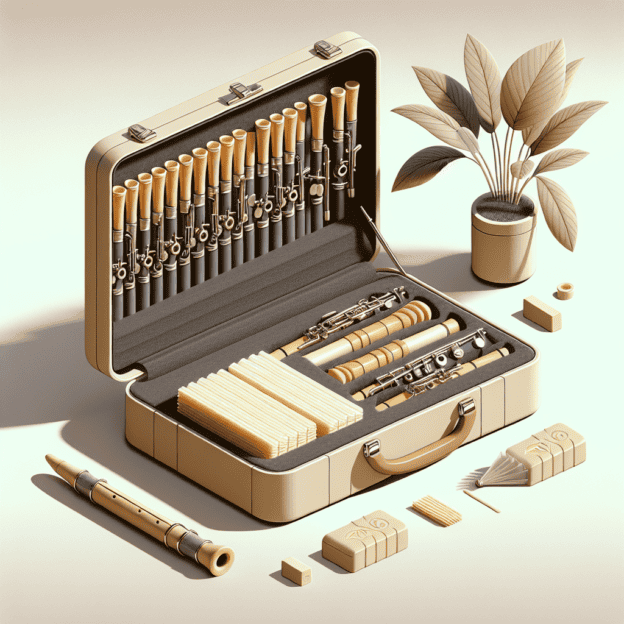Playing the clarinet requires not only mastery of the instrument itself but also an understanding of how environmental factors can impact performance. One of the most significant factors is humidity, particularly when it comes to the reeds. The reeds are the source of sound for the clarinet, and keeping them in top condition is essential for achieving the best sound possible.
The Importance of Humidity Control
Humidity control in reed cases is vital for several reasons:
- Preventing Reed Warping: Reeds can warp if exposed to too much moisture or dryness. Changing humidity levels can make their shape unstable, affecting how they produce sound.
- Longevity of Reeds: The right humidity levels can help your reeds last longer. When they dry out, reeds become brittle and can break easily, meaning you'll need to replace them more often.
- Consistent Sound Quality: Keeping humidity levels steady helps ensure that each reed plays consistently, giving you a uniform sound quality across different performances.
Understanding Humidity Levels
The best humidity levels for clarinet reeds usually range from 40% to 70%. This range helps balance moisture effectively while stopping the reed from getting too wet, which can make it overly soft. On the flip side, not enough humidity can lead to dry reeds that produce sharp and unstable tones.
| Humidity Level | Effect on Reed |
|---|---|
| Below 40% | Reed becomes dry, brittle, and prone to cracking |
| 40% – 70% | Optimal range for reed performance and longevity |
| Above 70% | Reed becomes too soft, affecting sound quality |
Humidity Control Methods
There are several ways to control humidity levels in your clarinet reed case:
- Humidity Packs: These packs are designed to keep a set humidity level within a closed space, like a reed case. They absorb extra moisture or release it as needed, creating a stable environment for your reeds.
- Hydrogel Products: Hydrogel or gel beads are great at absorbing excess humidity. You can put them in the reed case to help keep moisture levels more consistent.
- Silica Gel Packs: While silica gel is known for absorbing moisture, it can also remove too much humidity. Use these carefully and keep an eye on the moisture level.
- Ventilation: Letting your reed case have some airflow stops stagnant moisture from building up. A well-ventilated reed case helps keep the environment more stable.
Choosing the Right Reed Case
When picking a reed case that helps with humidity control, look for these features:
- Airtight Seal: A good reed case should close tightly to keep in the humidity created by the methods you choose to use.
- Reed Holders and Dividers: Find cases that have room for multiple reeds with dividers that help keep proper spacing and airflow.
- Moisture Indicators: Some advanced reed cases have humidity indicators that let you know when conditions aren't in the right range.
Checking Your Reed's Condition
Often check your reeds for signs of wear or unevenness. A healthy reed should be flexible but firm. Look out for any cracking or too much bending, as this can mean the humidity levels aren't right. If you notice the sound isn't consistent, check your reeds right away.
FAQs about Clarinet Reed Humidity
Can I use a standard humidifier for my reed case?
It's best not to use a standard humidifier as they might add too much moisture, which can damage your reeds. Instead, use humidity packs or gel made specifically for reed cases.
What should I do if my reeds are too dry?
If your reeds are too dry, try putting them in a slightly humid environment. You can also dampen them a bit before playing. But be careful, as making them too wet can cause other problems.
Final Thoughts on Reed Care
Taking care of the humidity in your clarinet reed case is just as important as practicing your music. By looking after your reeds, you make sure your clarinet sounds its best, letting you express yourself fully through your music. Use the tips we've talked about here and you'll have healthier reeds that make your playing even better.







